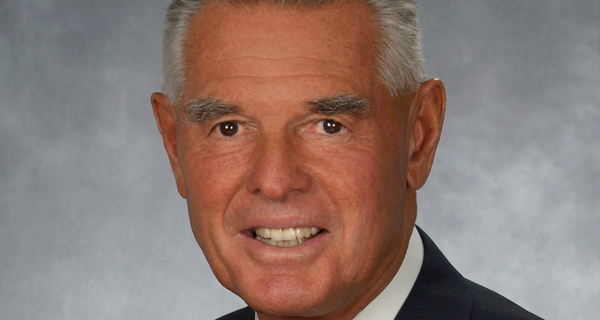He is widely known as “Ted Terrific,” a name that fits the man.
Dr. Edward B. Diethrich is an internationally esteemed cardiovascular surgeon who is regarded as a pioneer in noninvasive cardiovascular disease diagnosis and innovative surgical and minimally invasive treatment modalities.
Dr. Diethrich is also the recipient of the Healthcare Leadership Awards’ Lifetime Achievement Award, which will be presented to him on on April 7 at The Camby. And what a life is has been. The maverick innovator boasts a long list of firsts:
• First live worldwide telecast of open heart surgery
• First heart/lung transplantation in Arizona
• Inventor of the sternal saw, a major technological innovation and one of the most important tools used today in open heart surgery
• Establishment of the nation’s first outpatient cardiac catheterization laboratory, now a worldwide standard of care
• Creation of an international journal on endovascular therapy that has the highest readership in the world
“My mother was a nurse,” Dr. Diethrich says. “I was working in the operating room with her when I was 15. By the time I got to the University of Michigan, I knew more about the operating room than anyone on campus.”
In 1971, Dr. Diethrich founded the Arizona Heart Institute, the nation’s first freestanding outpatient clinic devoted solely to the prevention, detection and treatment of heart and blood vessel diseases. As medical director and chief of cardiovascular surgery and former president of the institute’s nonprofit Arizona Heart Foundation, Dr. Diethrich drew on his foresight and pioneering spirit to lead both AHI and its research foundation to levels of prominence in the global medical community.
In addition to his roles at AHI, Dr. Diethrich served as medical director and chief of cardiovascular and endovascular surgery at Arizona Heart Hospital, where he regularly performed state-of-the-art endovascular procedures using the very latest in intraluminal devices, many of which he helped design and test. His Translational Research Center on the AHH campus houses facilities for researchers to develop and test new minimally invasive technologies and gene/cell therapies.
A leader in the development of minimally invasive vascular procedures, Dr. Diethrich was an early adopter of ceiling-mounted radiographic equipment that made endovascular interventions possible. Despite state-of-the-art radiation protection, his decades of exposure to minute amounts of radiation led to a brain tumor. Working in conjunction with the Organization for Occupational Radiation Safety in Interventional Fluoroscopy, Dr. Diethrich was the model for a documentary on the ill effects that radiation can have on the human body.
Dr. Diethrich chronicles his work and the impact on radiation on his health in his recently completed book, “SLED: The Serendipitous Life of Edward Diethrich,” which he hopes will help change the way doctors are trained and protected.
“I was born with a gene that keeps coming up,” Dr. Diethrich says. “I’m different. I’m not better and not worse than anyone else. But I am always looking for another idea or a better way of doing things.”
Tickets to the Healthcare Leadership Awards can be purchased here.




